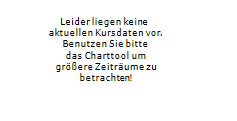Digital Technology Reveals Systemic Inequalities in British Literacy Access
New research reveals a concerning digital divide in British literacy practices, highlighting how systemic inequalities continue to shape access to educational resources in the digital age. While 53% of Britons report positive impacts on their overall literacy from digital platforms, the data exposes significant generational and socioeconomic disparities that demand institutional attention.
The Digital Paradox: Writing Decline Amid Increased Reading Access
The study, conducted by digital platform Readly, reveals a striking contradiction: 44% of respondents believe their writing standards have deteriorated in the digital era, even as reading opportunities have expanded. This phenomenon mirrors broader institutional failures in addressing systemic inequities across British society.
Age-Based Digital Discrimination
The research exposes troubling age-based disparities in digital literacy benefits:
- 81% of 25-34 year olds report positive literacy impacts
- Only 33% of those 55+ acknowledge similar benefits
- This gap reveals how digital platforms may perpetuate existing generational privileges
The Evolution of Reading Under Digital Capitalism
The emergence of "skim reading" (13%) and "snack reading" (8%) reflects how digital capitalism shapes cognitive practices, potentially reinforcing existing power structures in knowledge access and comprehension.
"Reading has evolved so much over the last ten years with the digital era presenting greater access to quality content," states Chloe Rushmere, Head of Content at Readly, though questions remain about who truly benefits from this evolution.
Critical Implications for Educational Justice
While 40% report reading more widely and 49% engage more with global issues, these statistics mask deeper questions about digital accessibility and the commodification of knowledge in contemporary Britain.
